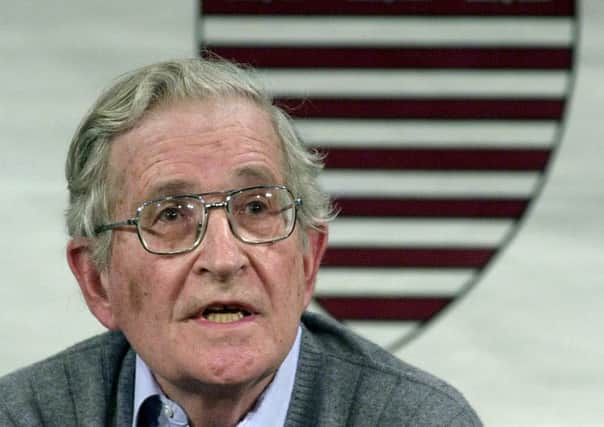Scottish independence: Noam Chomsky backing Yes


In an interview with Russian news agency RIA Novosti, Professor Chomsky said he had ‘been following the debate with interest’, adding that he was continuing to look into the details and consequences of a Yes vote.
Professor Chomsky told RIA: “My intuition favours independence.”
Advertisement
Hide AdAdvertisement
Hide AdThe academic also spoke of his desire to see greater devolution of power across Europe, adding: “No one wants to restore the Ottoman Empire, obviously, but in some respects it had the right idea: let people manage their own affairs, with co-operative federal arrangements, and as few barriers as possible.”
A spokesman for Yes Scotland told RIA Novosti that Professor Chomsky’s backing was ‘encouraging, but not surprising’, adding: “Professor Chomsky, of course, is not a nationalist and increasing numbers of people in Scotland, particularly Labour supporters and those who have no party political affiliation at all, also see the logic of putting Scotland’s future in Scotland’s hands.”
Responding to the academic’s comments, a spokesman for the pro-Union Better Together campaign said: “In Scotland, when people study the issues in detail they conclude that we are stronger and better together as part of the UK.”
Professor Chomsky, who has written over 100 books, has established himself as a leading philosopher.
In 1990, following a speech on self-determination in Glasgow, Professor Chomsky said: “Is a movement for Scottish nationalism crazy? It depends what form it takes. If it takes the form of expressing cultural values and integrating people in a more full life, that’s fine. Nationalism has a way of oppressing others.”
The political thinker added that splitting up Scotland and England could be a good thing, suggesting that the collapse of centralised powers made sense. But he added: “On the other hand you want to make sure that a move towards devolution doesn’t lead to more pressure, which it could very well do.”